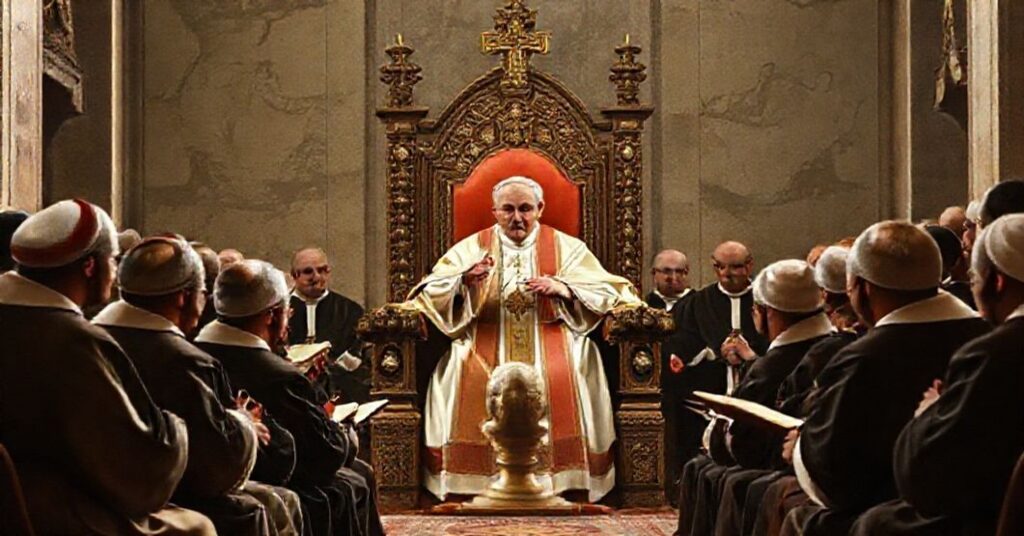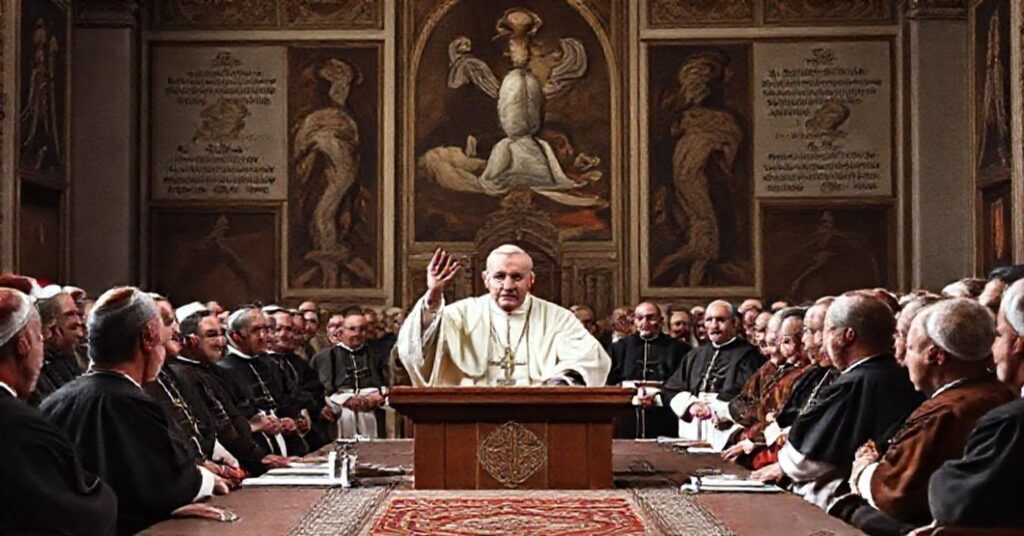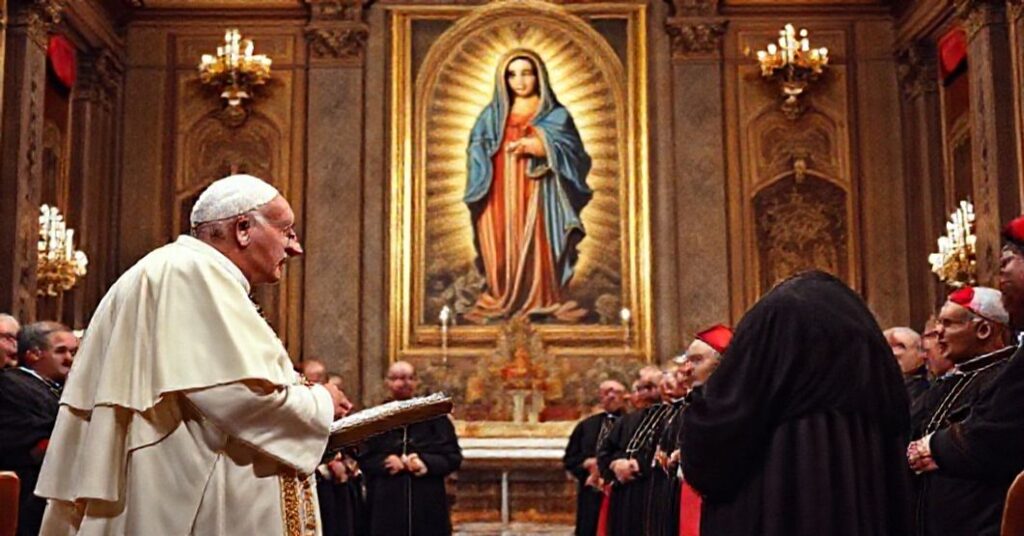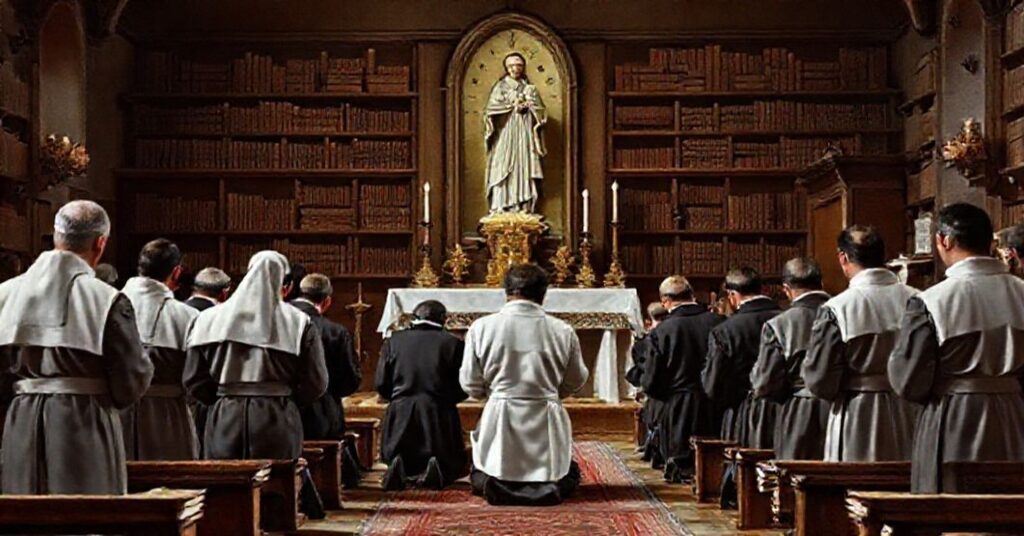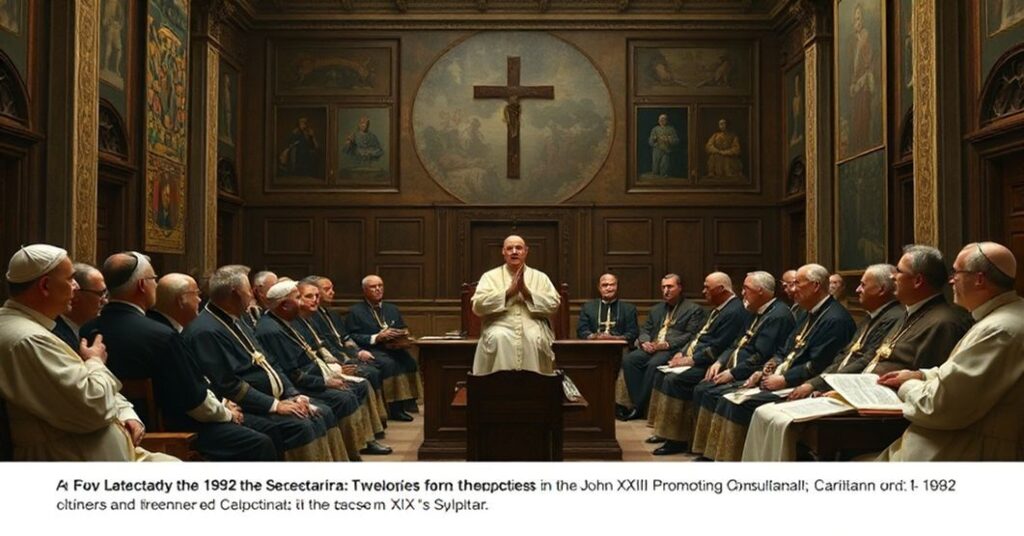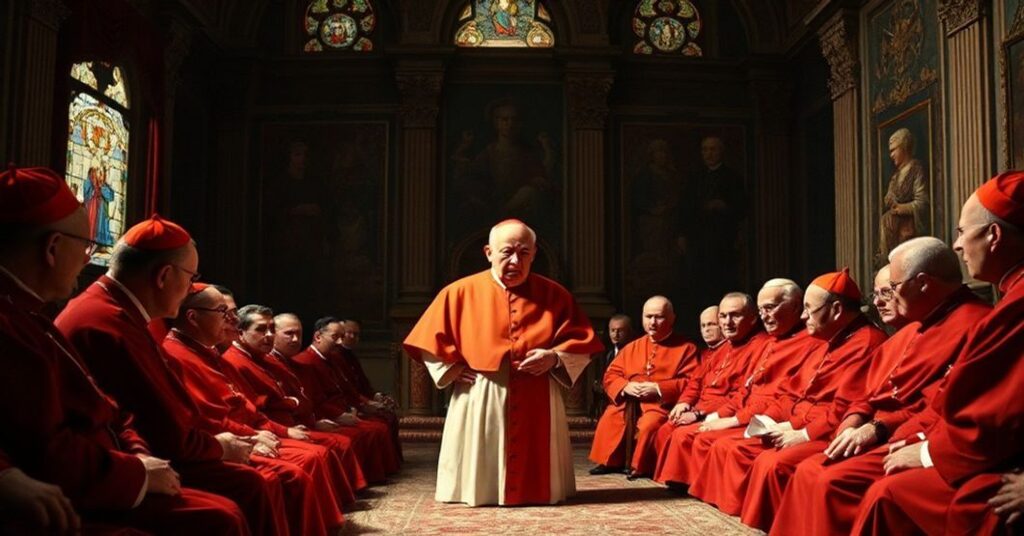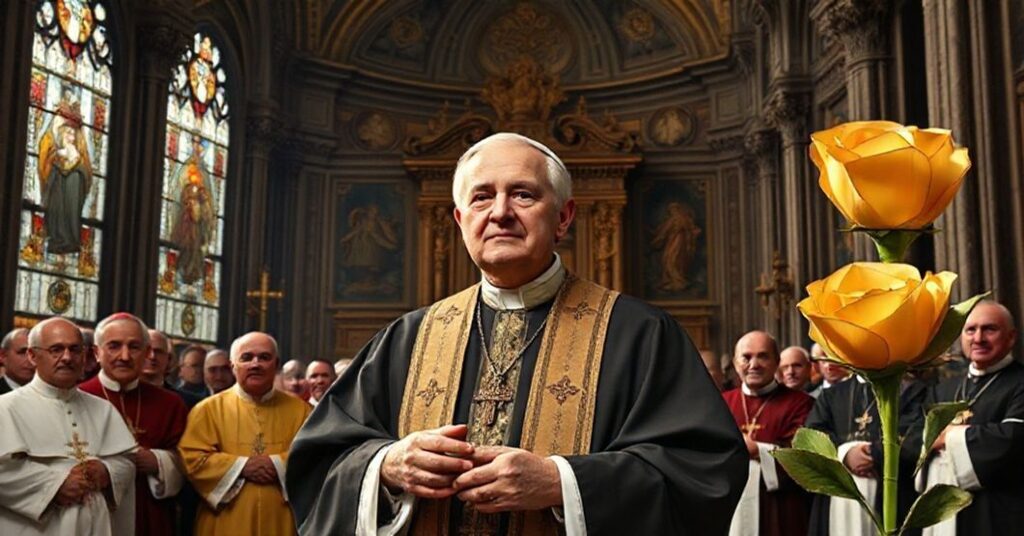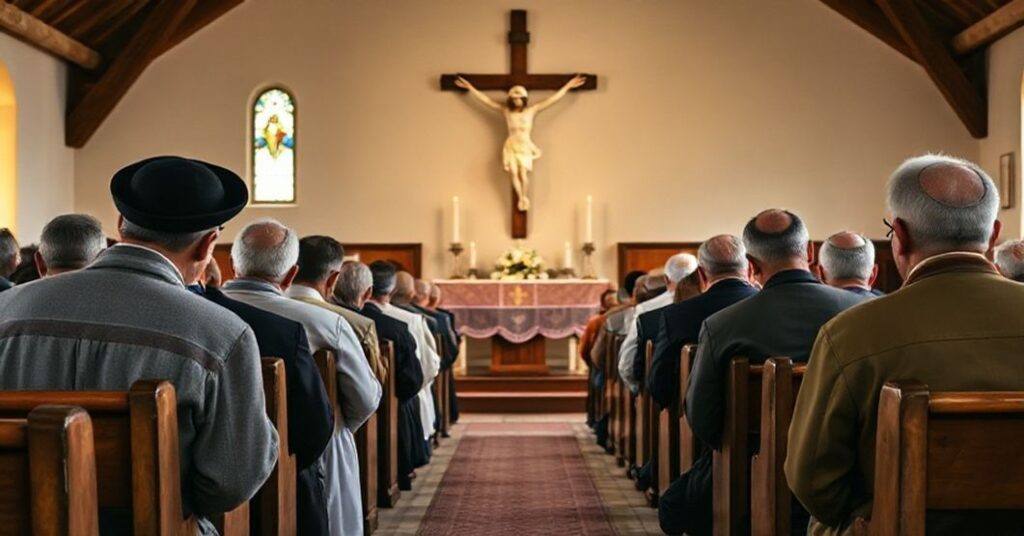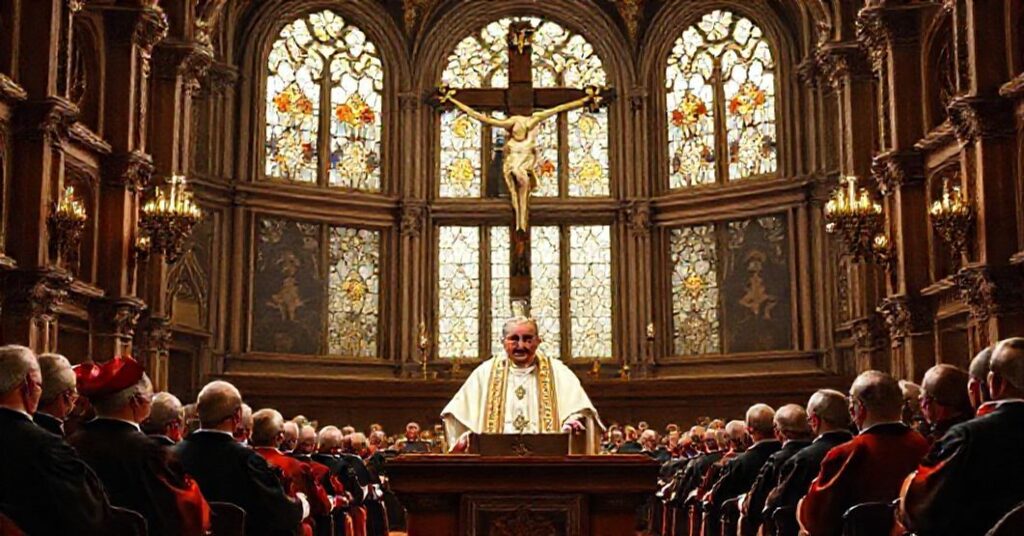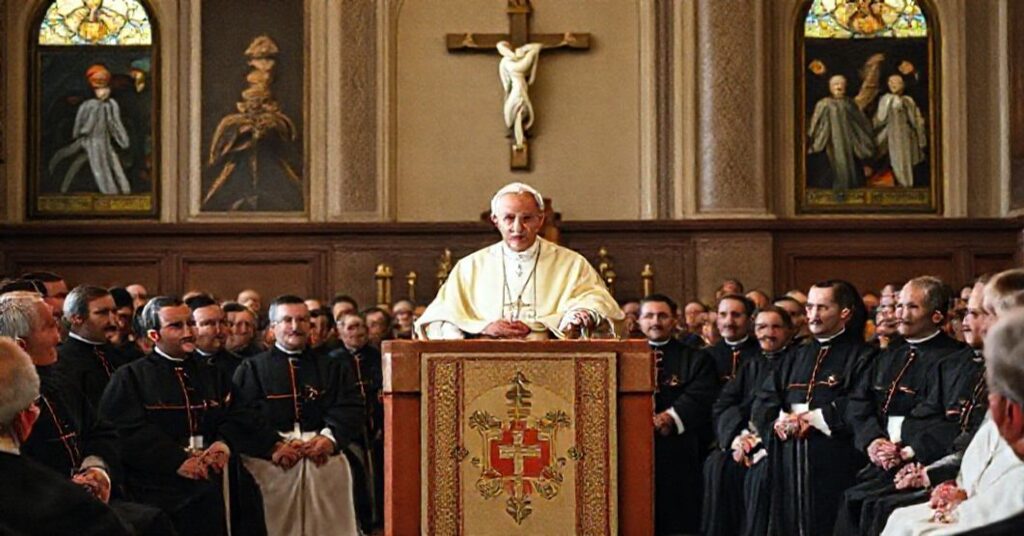Allocutio ad Moderatores Congregationis Redemptoristarum (1963.02.08)
The text is a brief allocution of John XXIII to the superiors and members of the Congregation of the Most Holy Redeemer (Redemptorists) gathered in Rome for their General Chapter in February 1963. He flatters their growth, exhorts them to revise their Rule and Constitutions to adapt them to “the needs of the times,” warns (in words) not to bend to worldly spirit while in practice urging aggiornamento, presents Saint Alphonsus as a flexible legislative model, and links their renewal to the spirit of the ongoing Vatican II, asking for prayers and sacrifices for the Council. In essence, this address is a polished manifesto of the nascent conciliar program: using the language of fidelity to disguise the systematic re-engineering of religious life and doctrine according to the demands of the world.

